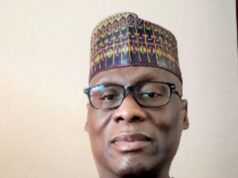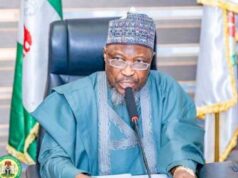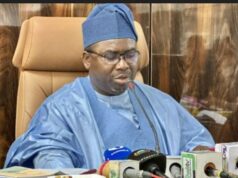
Defined roles for traditional rulers in Nigeria constitution and devolution of power have emerged as parts of the items to be considered by the House of Representatives as it moves to amend the 1999 constitution.
This hint was dropped yesterday, February 26, by the Speaker, Abbas Tajudeen when he
inaugurated the House Committee on the Review of the Constitution of the Federal Republic of Nigeria, 1999 (As Altered).
Speaker Abbas said that the Sixth Alteration to the constitution under this 10th National Assembly would be the most comprehensive.
“As such, the task before the Constitution Review Committee is profound.
“The House Agenda is ambitious in its scope and encompasses wide-ranging issues pivotal to our national growth.
“Among these are devolution of powers, including state policing; enhancement of fiscal federalism through local government autonomy; further decongesting the Exclusive Legislative List; recognising and assigning constitutional roles for traditional institutions; and promoting inclusivity, particularly greater gender equity and women representation into appointive and elective positions.
“Other critical areas for your consideration include implementing comprehensive electoral reforms to address the gaps identified in the aftermath of the 2023 general elections; strengthening the enforceability of legislative instruments; and institutional strengthening for greater accountability, among others.
“These areas are crucial for reinforcing our democracy and ensuring that the governance structure meets the needs and aspirations of all Nigerians. Several Bills have already been introduced in both the Senate and the House, touching on some of these very important issues.”
The Speaker suggested that in making recommendations and proposals that potentially have far-reaching impacts, such as state police, the House should adopt a scientific approach grounded in empirical evidence rather than ideology, personal beliefs, or political expediency.
Speaker Abbas pointed out that the methodology to be adopted by the Committee would emphasise inclusivity, transparency, and collaboration.
He said that the House would work closely with the Executive arm of the governments, both at the federal and sub-national levels, adding that this partnership stemmed from recognising their pivotal role in governance, ensuring that the review process is comprehensive and considers the practical aspects of implementation.
The Speaker said that the 1999 Constitution, as the supreme law of the land, has been the groundnorm of our democracy for over two decades.
“Yet, like any great edifice, it requires periodic assessment and renovation to ensure it meets the changing needs and aspirations of our people.”
He recalled that under the 9th Assembly, the Fifth Alteration made some of the most far-reaching amendments, as it clarified and reinforced financial autonomy for state Houses of Assembly and the Judiciary, decongested the Executive List, defined guidelines for the first session and inauguration of members-elect of the National and state Houses of Assembly and deleted reference to the provisions of the Criminal Code, Penal Code, Criminal Procedure Act, Criminal Procedure Code or Evidence Act, among others.
“All these made the Fifth Alteration the most extensive since 1999.”
Deputy Speaker of the House, Benjamin Okezie Kalu is the chairman of the Committee and the House Majority Leader, Professor Julius Ihonvbere, is deputy chairman.
The Committee has six additional women, one from each of the six geo-political zones. The House’s zonal caucus leaders have been co-opted in an advisory capacity, to advise the Committee on issues relating to their respective zones.
The Committee’s secretariat is made up of a representative of people living with disabilities to ensure that their concerns are properly accommodated. The mandate of the Committee is to receive and consider proposals for alteration of the 1999 Constitution (as amended); create a forum for stakeholders and the public to make inputs into the review process and collaborate with the Senate and the state Houses of Assembly as required by law.
Speaker Abbas said that Legislative Agenda of the House identified streamlining and improving the constitutional reform process as a cardinal objective.
“In this regard, the House is already working on a Constitution Alteration Procedure Bill to provide a framework and a timeline for the passage of Constitution alteration bills by the National Assembly and adoption by State Houses of Assembly. The early commencement of constitution review activities by the 10th House is yet another step towards actualising our Agenda.”






